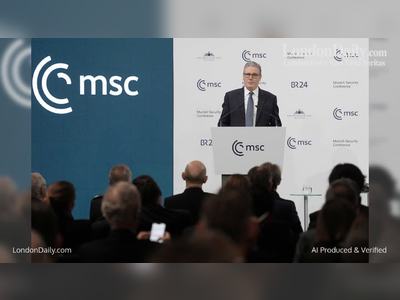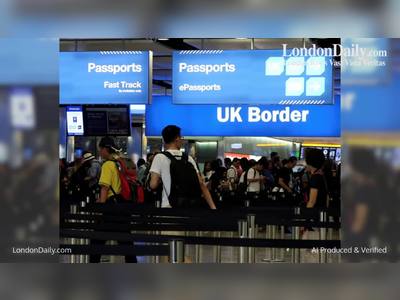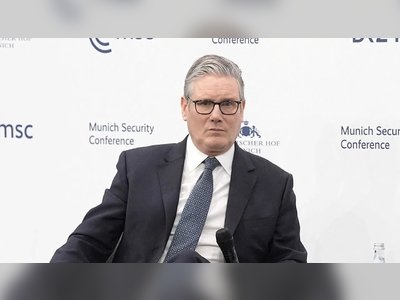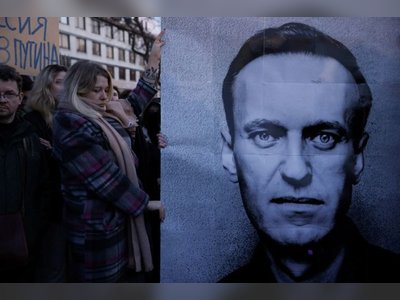
Europe will not be safe from COVID-19 until the world is safe
Last week, the pandemic receded in Europe. It is far from over, but there were fewer cases, fewer hospitalizations, fewer deaths and more vaccinations. That’s the good news. But the bad news is that on a global scale, last week was one of the deadliest so far. And Europe will not be safe from COVID-19 until the world is safe from COVID-19.
European nations and institutions therefore have a triple responsibility. First, they must finish the work they have started: vaccinate their populations, keep public health measures in place in line with levels of infection, and only carefully loosen restrictions when public health advisors agree. As we know too well now, loosening too soon results in yet another wave. Across the Continent, and including in the U.K., travel arrangements for the summer need to be organized bearing this in mind.
Second, there is an imperative to help the rest of the world bring the disease under control. This is not just a moral necessity. It is also vital for Europe’s health security. The mutations of the disease, and their transmissibility, mean that commitment to a global response represents realism, not just idealism. Every European citizen needs to be vaccinated. But so do people in less prosperous parts of the world.
There is an immediate need for the redistribution of vaccines from high income countries, who have what they require to cover their populations, to lower and middle-income countries. Developing countries also need support for distribution of the vaccines — because the cost of effective distribution can be five times that of production.
Third, Europe’s leaders must help build an international system of preparedness and response to prevent the next pandemic. Without European engagement, the likelihood is that inertia will triumph. Eleven reports in the last 20 years have recommended changes to the system. They were largely ignored, and the result has been the global disaster of COVID-19. We need to do much better next time — and every expert agrees there will be a next time, a new pathogen with pandemic potential.
The Independent Panel on Pandemic Preparedness and Response, on which we both serve, was asked by the World Health Assembly to find out what went wrong that allowed a viral outbreak in Wuhan to become the worst pandemic in a century, and to make recommendations to strengthen the world’s defenses against future threats.
Our diagnosis is unsparing: In our final report published today, we say that preparation was too weak, detection and alert too slow, early response too meek and the sustained response too unequal. There was complacency where the world needed precaution, denial in place of action, hoping for the best rather than acting in case of the worst.
Business as usual is the enemy. So, starting at the World Health Assembly on May 24, European negotiators should argue in every session that business as usual is over. There are many priorities, but four are essential, and Europe has distinctive experience with all four.
One: Pandemic preparedness and response belongs in the hands of presidents and prime ministers before a crisis strikes, not just after. That is why we propose a Global Health Threats Council, at head of government level, to apply political pressure and accountability in pandemic prevention.
This Global Council needs money to have muscle. We propose an international finance facility that has guaranteed funding for 10 to 15 years. This would fund annual preparedness efforts focused on national and global “public goods” — investments in surveillance capacity, including genomic sequencing capacity, where the benefit is for all not just for the country who pays. It would also fund “surge” financing in the case of a future pandemic. Both have been sorely lacking during COVID-19.
Two: Preparedness involves surveillance and simulations but also pre-positioning of institutions and finance. The Access to COVID-19 Tools Accelerator (ACT-A) is designed to play catchup in the global search for vaccines, diagnostics, and therapeutics. It needs to be able to prepare the entire world for the next pandemic.
Three: The World Health Organization has been under-powered and under-resourced for the tasks it has been given. This will only change if its staff have more independence from national politics. Europe has experience in creating the European Commission and European Central Bank, institutions where independence is a founding premise of the organizations. We need a WHO able to hold countries to account.
That means guaranteed finance, not annual begging for funds. It means investigatory powers on the scale of the International Atomic Energy Agency. It means seven-year terms for the most senior officials — non-renewable so they are not subject to outside pressure.
Four: We need change to the system of detection and global alert. The existing system failed during the “lost month” of February 2020, when business as usual continued in most countries — despite January’s declaration of a global public health emergency.
Multilateralism has been in retreat in recent years, with nationalism on the rise, countries looking inwards and geopolitical tensions rising. The EU is vital to creating global solutions, and it should support the far-reaching changes the Independent Panel is proposing, to confront a problem of planetary scale.










